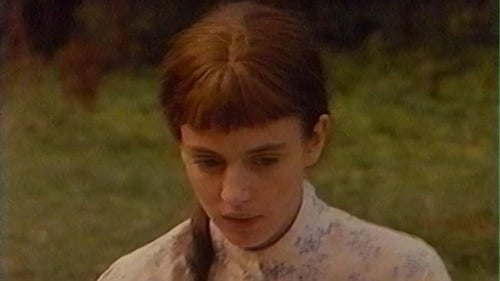
Director of Photography
Carl-Gustaf Nykvist's documentary about his father, Sven Nykvist. The film is based on Sven's memoirs with Sven himself as narrator. A journey to the place of birth, Moheda, constitutes the hub of the film and during the journey friends and memories emerge. Written by Fredrik Klasson

Producer
Carl-Gustaf Nykvist's documentary about his father, Sven Nykvist. The film is based on Sven's memoirs with Sven himself as narrator. A journey to the place of birth, Moheda, constitutes the hub of the film and during the journey friends and memories emerge. Written by Fredrik Klasson

Writer
Carl-Gustaf Nykvist's documentary about his father, Sven Nykvist. The film is based on Sven's memoirs with Sven himself as narrator. A journey to the place of birth, Moheda, constitutes the hub of the film and during the journey friends and memories emerge. Written by Fredrik Klasson

Director
Carl-Gustaf Nykvist's documentary about his father, Sven Nykvist. The film is based on Sven's memoirs with Sven himself as narrator. A journey to the place of birth, Moheda, constitutes the hub of the film and during the journey friends and memories emerge. Written by Fredrik Klasson

Writer
Rickard, a young man, helps to illegally transport a medieval icon from Germany to Sweden. The icon possesses remarkable forces. Strange things happen. Rickard returns to his brothers empty apartment. He finds a film projector, a telescope and some drawings. A tape recorder is playing. A voice is heard. Rickard starts the film projector. Parts of his childhood is shown. He contacts his girlfriend. She informs Rickard that his mother is in hospital.

Director
Rickard, a young man, helps to illegally transport a medieval icon from Germany to Sweden. The icon possesses remarkable forces. Strange things happen. Rickard returns to his brothers empty apartment. He finds a film projector, a telescope and some drawings. A tape recorder is playing. A voice is heard. Rickard starts the film projector. Parts of his childhood is shown. He contacts his girlfriend. She informs Rickard that his mother is in hospital.

Writer
An innocent and beautiful girl, Linnea rents an apartment in Stockholm just before WWI. As she works for an old man who owns a photography studio she meets Anna, a photographer with whom she develops a complex friendship. Anna’s circus-performer boyfriend and European politics complicate Linnea’s routine.

Director
An innocent and beautiful girl, Linnea rents an apartment in Stockholm just before WWI. As she works for an old man who owns a photography studio she meets Anna, a photographer with whom she develops a complex friendship. Anna’s circus-performer boyfriend and European politics complicate Linnea’s routine.

Director
Based in Stockholm Abelli Elander has been working as an artist since the 1970's. Her early works focus on contemporary gender issues, through a surreal visual language inspired by comics and pop culture in general. Apart from this little offbeat gem (directed by the Charlie Nykvist, son of the famous cinematographer) she has also brought her style to several movies as a costume and set designer. Among these are several films directed by Marie-Louise Ekman (most notably Mamma, pappa, barn and Barnförbjudet) and Håkan Alexandersson and Carl-Johan de Geer (Tvätten, Res aldrig på enkel biljett, Resa till havet).

Co-Writer
About the artist Tamara de Lempicka. At the outbreak of the World War One she fled Poland and settled in Paris. She was quickly drawn into the interaction with Paris's cultural elite.

Director of Photography
About the artist Tamara de Lempicka. At the outbreak of the World War One she fled Poland and settled in Paris. She was quickly drawn into the interaction with Paris's cultural elite.

Director
About the artist Tamara de Lempicka. At the outbreak of the World War One she fled Poland and settled in Paris. She was quickly drawn into the interaction with Paris's cultural elite.

Still Photographer
Before World War II, Swedish workers had to deal with low wages, scarce work, and the extensive importation of foreign labor, particularly for the purpose of breaking strikes. This did not make foreigners of any stripe very popular, and those from "guest worker" countries were particularly disliked. In this film, set in 1938, a half-Polish boy goes to Poland in search of his mother, runs into financial and psychological difficulties there, and is sent back to a Swedish mental hospital. In another story, an unfortunate woman suffers a miscarriage and ends up at the asylum where the Polish boy is being kept.












